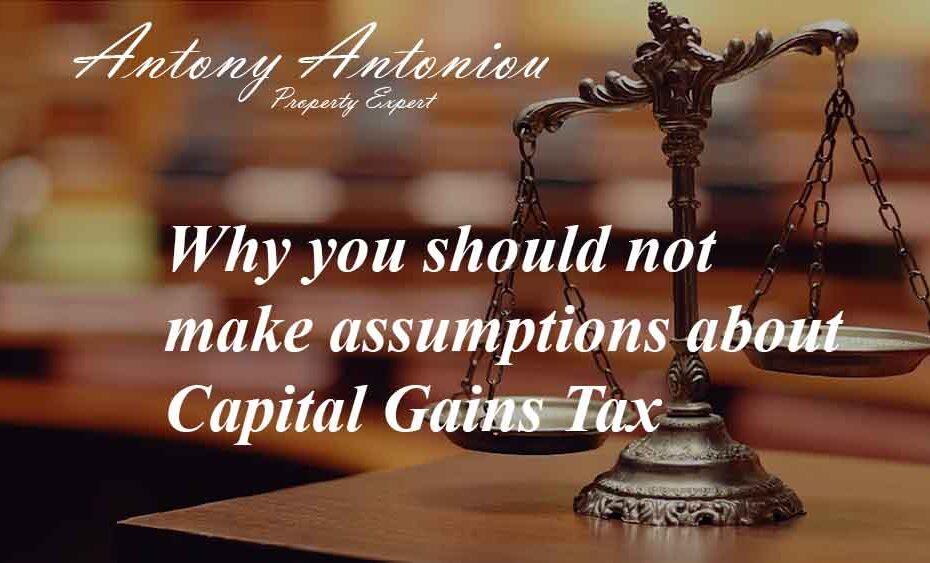Why you should not make assumptions about Capital Gains Tax
Q. Three years ago, my wife and I made the difficult decision to separate after sharing many decades together. Importantly, neither of us has any intention of pursuing a divorce. Initially, I remained in our former family home, while she purchased a smaller property to begin her new life independently.
A couple of years later, I sold our family home and distributed a portion of the proceeds to our offspring. I also provided my wife with a sum of money to help her purchase a larger property for herself. Currently, we both live separately in properties of roughly equal value, each valued at around £550,000. In addition to these properties, we possess various other assets and savings.
At our age, the uncertainty of another seven years of life looms over us. We are aware that our wills designate each other as beneficiaries, which means that there would be no inheritance tax levied upon the first person’s passing. In such a scenario, the surviving spouse would plan to sell the vacant property and distribute the proceeds, with the hope of living for an additional seven years to prevent our offspring from facing a substantial tax burden.
My inquiry pertains to the potential inheritance tax liability on the two homes upon the second person’s passing. Both properties are registered and occupied individually by each of us.
It is important to note that we have not pursued any formal legal separation agreement, as we find such a process to be intrusive, unnecessary, and costly.
I have recently pondered the possibility that other couples may be contemplating a similar “tax-saving on two houses” strategy, which the HMRC is likely aware of. In our case, this situation arose from a genuine and unfortunate separation, even though it lacks official documentation.
A. Let me begin by outlining the fundamental rules governing your situation:
For capital gains tax (CGT) purposes, it’s crucial to understand that separation, not divorce, is the relevant factor. While married couples (including civil partners) can freely transfer assets between each other without incurring CGT while living together, this privilege ceases three years after the conclusion of the tax year in which separation occurs. This time frame was extended from one year in April. Additionally, a married couple living together can only claim a single residence as their main residence for capital gains tax relief.
In your case, given the likelihood of a permanent separation, both you and your wife are entitled to claim what is known as “principal private residence relief” for your respective homes. The specific rules can be found in the HMRC manuals, which provide a helpful explanation.
However, it’s important to note that the situation for inheritance tax (IHT) depends on divorce rather than separation. As long as you remain married, you can transfer assets between each other without triggering any IHT issues, even though you are separated.
Consequently, when you sold your original house, it likely qualified for private residence relief up to that point, meaning no capital gains tax was due. Likewise, your current property should also be eligible for this exemption. If necessary, your wife should qualify for the exemption on her own home.
As you rightly pointed out, with reciprocal wills in place, there should be no inheritance tax upon the first death. For example, if your wife were to pass away first, you would inherit all her assets, including her home, with its value rebased to market value for capital gains tax purposes.
Subsequently, you could sell these assets, provide the proceeds to your children, and initiate the countdown under the “seven-year rule.” Upon your death, your executors would automatically have access to your £325,000 inheritance tax-free band. Additionally, your estate should be eligible for an extra £175,000 “residence nil-rate band,” often referred to as the family home allowance. This is possible because you will be leaving your assets directly to your children, including your home valued at over £175,000, and your total assets fall below £2 million.
Upon your death, your executors would also be able to make claims for both your wife’s standard £325,000 allowance and her family home allowance. This is because, by leaving all her assets to you, she didn’t utilize either of her allowances, and her home is valued at over £175,000.
It’s important to note that these claims are subject to a two-year time limit. In summary, up to £1 million could be passed on to your children free of inheritance tax. Any excess amount, along with the earlier gifts made to your children, might be subject to estate taxes if you were to pass away within seven years of making these respective gifts.
Your concern about couples potentially falsely claiming separation to benefit from two capital gains tax exemptions related to a property is valid. There have been several court cases involving such situations, often concerning rental properties. However, your case appears to be genuine. Nonetheless, it’s advisable to exercise caution.
Remember that there is no capital gains tax at death. However, if either of you sells your home and intends to claim relief, it’s wise to have supporting evidence available. This could include being registered on the appropriate electoral roll, being associated with your local medical practice, and having all services registered separately. Additionally, having a reputable individual willing to provide evidence, such as a local magistrate, solicitor, or even your local vicar, can be beneficial.

